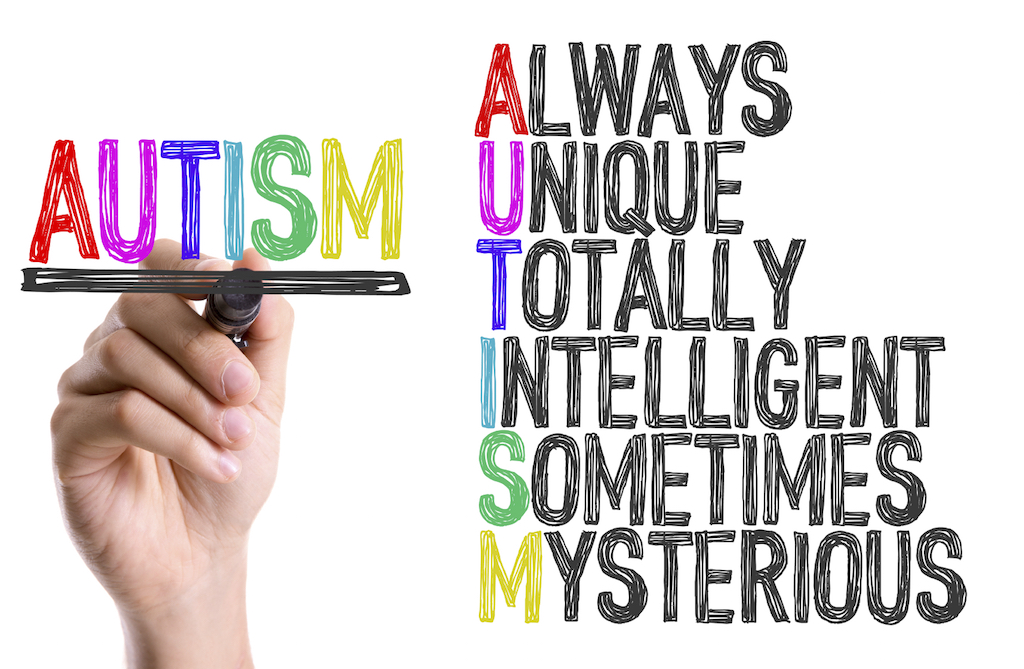SingaporeMotherhood | Parenting
April 2016
14 Life-Changing Tips to Know if You are Struggling with a Child with Autism

Have you ever felt helpless and clueless about how to manage your child? Were you shocked when you were told your child had autism and wondered whether the doctors were wrong in their diagnosis? All parents worry about their children. For parents of children with autism however, the anxiety may go deeper. Can my child successfully integrate into society? Will my child be able to learn how to fend for himself after I leave this world?
At the Pathlight School’s Autism Symposium on 9 April, two mothers of sons with autism shared these 14 life-changing tips that could potentially change your approach towards how you manage your personal and family life to accommodate your child with autism.
Loh Wai Mooi is the Vice President of the Autism Resource Centre (ARC) , a lawyer, and a mother of three. She co-chaired the sharing session with Jacquelyn Ang, a Board Member of ARC who has four children, one with autism. (*Please note that these mothers are sharing their personal experiences with their own children. These tips should not be regarded as expert advice.)
1. Don’t hold blame against your spouse/partner and guilt against yourself
Finding fault with anyone does not cure autism. It only creates emotional baggage that isn’t healthy for your child, your marriage, and your family. First, work on taking blame and guilt out of the picture. Then, work on how to co-parent your child.
2. Understand that some people need more time to accept the diagnosis
When told that a child has autism, many parents and family members go through fear and anxiety before accepting the diagnosis. It is common for some to live in denial for years and insist that the child with autism does not need help. This can be damaging for the child. Make an effort to learn more about autism by speaking to people who are coping with a family member who has autism, or those who help individuals with autism. This can help you and your family have a better understanding of what autism is, and how you can help your child.
3. Co-parenting is the best gift you can give your child
Image My Family Quotes
Both mothers agree that sharing parental responsibilities and creating a stable, loving environment is the best way to take care of your child. It is perfectly fine for one parent to have more parental responsibilities. However, the other parent should also have the opportunity to have one-on-one time with the child. Work out with your spouse or partner how to share the responsibilities according to each of your strengths.
4. Don’t be too hasty to try new “cures”
Wai Mooi cautioned parents against companies which take advantage of anxious parents by selling their latest “cures” for autism at exorbitant prices. She told us about a friend who had spent thousands of dollars to send her son for stem cell therapy in the United States. Unfortunately there was not much help in “curing” his autism.
Jacquelyn shared how her husband and their three non-autistic children suffered under the gluten-free-casein-free (GFCF) diet she had imposed on the whole family to ensure her son with autism ate GFCF food. She related how the other three children would have to hide and eat their normal food out of sight of their brother, how the whole family would have a specially-baked and expensive GFCF cake that did not taste good and which no one wanted to eat, and how they would have to tolerate the meals at the restaurants which served GFCF food during family gatherings. She has since stopped the diet after realising what a “crazy woman” it made her.
5. Focus on what your child can do, instead of what he cannot do
Instead of worrying that her son would not be able to work in a full-time job, Jacquelyn has successfully coached him to do one hour of work by himself. This is an achievement as her son has severe autism, making it difficult for him to focus for long periods of time. Jacquelyn made the effort to discover the kind of environment he works well in and his strengths, and coach him in useful tasks that would allow him to contribute to the family business.
What worked best for her son was TEACCH, a structured teaching approach for children with special needs. The goalpost is always changing, Jacquelyn reminded, so parents should not expect one particular scenario to work all the time, but try different ways to coax the child into achieving a realistic objective.
6. Surround yourself with positive people
Positive people find solutions to their challenges and are willing to share their tips with you. Their positive nature will rub off on you and give you the motivation to continue your daily struggle.
7. Get help from others, don’t do everything yourself
Sometimes, you need a break. Don’t feel shy to ask a trusted friend or family member to take care of your child for a short while, or help out with a household chore that you have no time or energy to do.
8. Be helpful, kind and fair to people you ask favours of
Image: Pediatric Occupational Therapy Services L.L.C.
Jacquelyn recounted how a friend had asked her to babysit her autistic daughter as the friend had to work on a public holiday. Jacquelyn had no clue how to manage the girl and kept calling her friend at work to ask. She recommends that parents create an instruction manual on how to manage their child who has autism. In it, include information on their schedules, food preferences, whether the child has been toilet-trained or not, how to deal with the child’s different behaviours, and any other information the is pertinent to the child.
9. Remember to work on your marriage and give attention to your other kids
Your world should not revolve only around your autistic child. The other people in your family need you too. Spend time with your spouse and other children. Your spouse should help you to co-parent, and your other children can babysit their sibling who has autism.
10. Remember that autism does not just disappear if your child goes to a mainstream school
Ms. Loh’s son attended a mainstream school for a few years, but she had to pull him out and enroll him in a special needs school where he could cope better. Some autistic children are able to cope in mainstream schools but manage your expectations as they still have special needs.
11. Love your child for who he is and not what you want him to become
A mother in the audience shared the story of her deceased son with autism, whom she had loved very much. When her son was diagnosed, her family had difficulty accepting his condition. He was enrolled in a mainstream school but eventually asked to leave because his condition made it difficult for him to learn in that environment. Her husband was so upset that he pushed his son down a flight of stairs. The fall was fatal. This happened seven years ago. It took the mother five years to recover, as she did not have much family support. She implored the audience, “Treat your children well and make them happy”.
12. Think about what you want your child to be as an adult. Then plan backwards
Jacquelyn wanted her son to have some independence, so she coached him in doing tasks until he could work uninterrupted for an hour. She did not want to leave it to circumstances to decide what he would be able to do as an adult. So she planned (early) how to nurture his ability to learn a useful skill and earn his own keep. Since young, he had also been taught how to do simple household chores and take care of his own space.
13. Help your child make his own choices
Some parents tend to make every decision for their child. This is unhealthy as the child will not learn how to make decisions (which will become more complex) on his own as he grows older. Let your child make simple decisions. Don’t contradict his choices. You can nurture his ability to make higher level decisions along the way.
14. Prepare your child’s support network beyond you
We need to prepare for the eventuality that our children will outlive us. Start planning the support network he can rely on if you pass on. These would include his appointed guardian(s), relatives, friends, and essential services. In addition to creating an instruction manual for others on how to handle your child, you can also take videos or photos and put them online with links to appropriate articles that can explain his condition and how to manage his temperament and needs. Compile these, together with other essential information like your will, your child’s family and medical history, and next-of-kin contacts. These will help ease your child’s transition to a life without you.
Being the parent of a child with autism isn’t the end of the world. It’s just the beginning of a different one. As another mother in the audience shared, “Don’t force them and expect them to be like normal kids. Love and accept them for who they are.”
All content from this article, including images, cannot be reproduced without credits or written permission from SingaporeMotherhood.
Follow us on Facebook, Instagram, and Telegram for the latest article and promotion updates.









